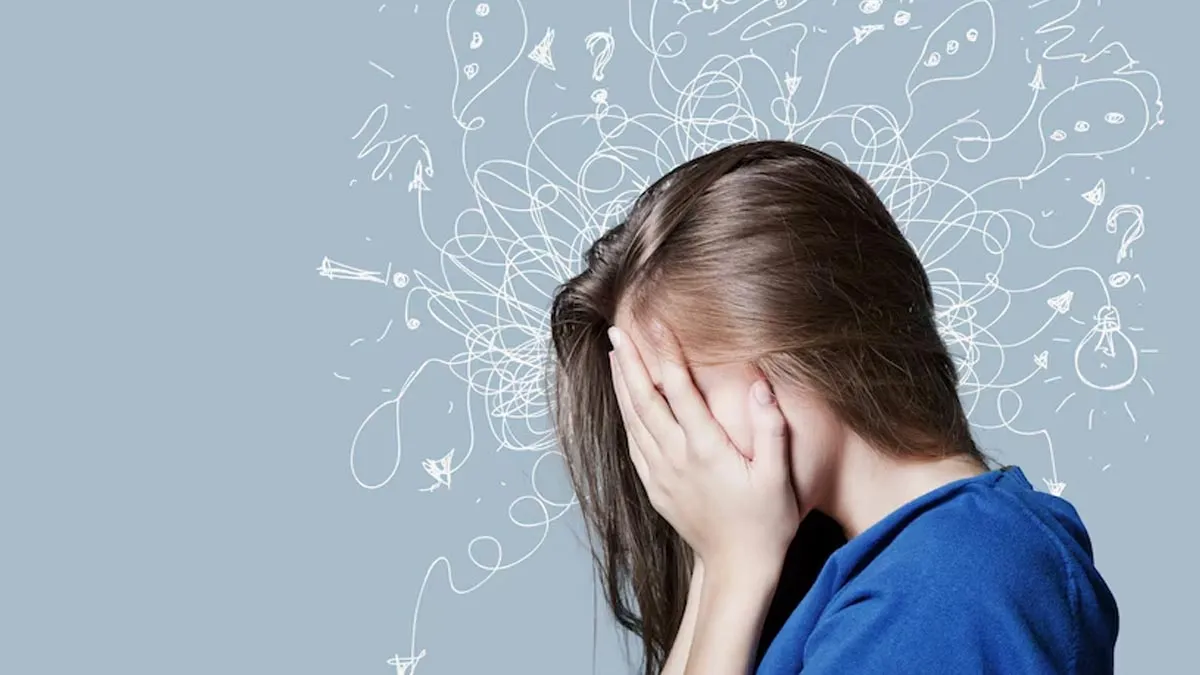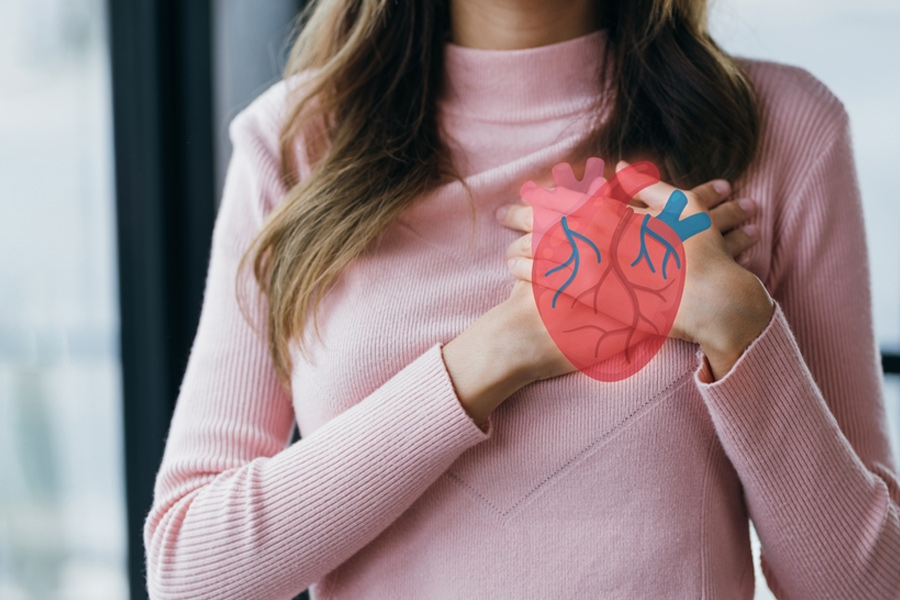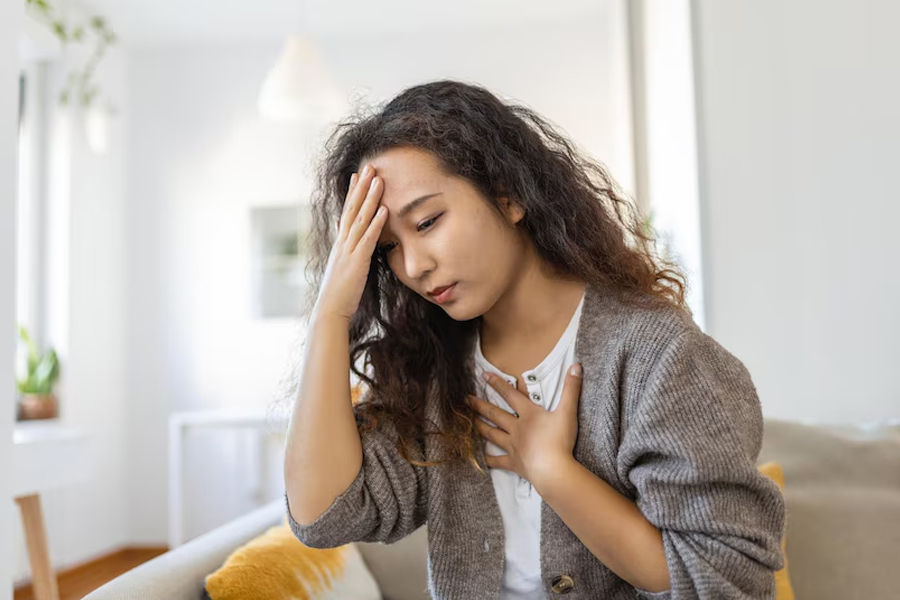
Do you feel your heart racing when you’re anxious, as if it’s trying to leap out of your chest? That unsettling flutter or pounding sensation can leave you feeling even more worried, creating a vicious cycle of fear and discomfort. But rest assured, you’re not alone. Heart palpitations are one of the most common physical symptoms of anxiety, and while they might feel alarming, they’re usually harmless. So, what’s happening inside your body when anxiety makes your heart skip a beat? Let’s find out and learn why your heart reacts the way it does.
Table of Content:-
CHECK YOUR
MENTAL HEALTH

Understanding the Body’s "Fight or Flight" Response
When you experience anxiety, your body activates its “fight or flight” response. This is an ancient survival mechanism that prepares you to either confront or flee from danger. In a conversation with the OnlyMyHealth team, Priyanka Kapoor, Psychotherapist and Psychologist, New Delhi, explains, "Because the body's 'fight or flight' reaction is triggered when we experience stress or fear, anxiety can result in heart palpitations."
The response begins when the brain perceives a threat, whether real or imagined. The neural transmitters in the brain collect this information and relay it to various cells in the body, triggering the release of stress hormones such as cortisol and adrenaline (epinephrine).
How Adrenaline Affects the Heart

The release of adrenaline plays a significant role in causing heart palpitations. Adrenaline stimulates the heart, making it beat faster and more forcefully. Kapoor elaborates,
"The sympathetic nervous system, which controls the body's 'fight or flight' reaction, is activated by anxiety. Stress chemicals like cortisol and adrenaline are released as a result. The heart is stimulated by the release of adrenaline, which makes it beat more forcefully and quickly. Palpitations, in which your heart beats or flutters in your chest, throat, or neck, may result from this."
This increase in heart rate is a normal part of the body’s attempt to prepare for action, ensuring that oxygen-rich blood is delivered quickly to muscles and vital organs.
Also read: What Is Sunset Anxiety? Understanding Symptoms, Risk Factors And Management
Increased Awareness of Sensations
Anxiety not only affects the heart physiologically but also heightens your awareness of bodily sensations. This amplified perception can make you more conscious of your heartbeat, even slight irregularities that you might not otherwise notice. Kapoor notes, "Your awareness of your body's sensations is typically increased by anxiety. This can intensify the sensation of palpitations by making you more aware of regular heartbeats or slight abnormalities."

Hyperventilation and Its Role
Anxiety often causes hyperventilation, or rapid breathing, which disrupts the body’s balance of oxygen and carbon dioxide. This altered pH balance can make the heart more sensitive, further increasing the likelihood of palpitations. Kapoor explains, "Hyperventilation, or rapid breathing, is another effect of anxiety that can alter the pH balance of the body and lower blood carbon dioxide levels. Palpitations may become more likely as a result of the heart being more responsive."
When Palpitations Become a Concern
While anxiety-induced heart palpitations are usually harmless, they can feel alarming, especially when accompanied by other symptoms like dizziness, shortness of breath, or chest pain. Kapoor advises, "Though usually innocuous, these might cause distress. See a healthcare provider if palpitations occur frequently or are accompanied by further symptoms."
Also read: How Can You Stop Heart Palpitations At Home, Doctor Explains
Managing Anxiety-Related Palpitations

To reduce heart palpitations caused by anxiety, managing the root cause—your stress levels—is key. Consider incorporating relaxation techniques such as:
Deep breathing exercises: Helps regulate breathing and restores the oxygen-carbon dioxide balance.
Meditation and mindfulness: Reduces overall stress and increases emotional resilience.
Regular physical activity: Improves cardiovascular health and reduces the intensity of the “fight or flight” response.
Professional support: Seeking help from a mental health professional, such as a psychotherapist, can provide coping mechanisms to manage anxiety effectively.
Conclusion
Heart palpitations caused by anxiety are a result of the body’s natural response to stress and fear. Priyanka Kapoor concludes, "Stress reactions brought on by anxiety cause the heart to beat more quickly or erratically, which results in palpitations."
Understanding this connection can alleviate much of the distress associated with palpitations. However, persistent or severe symptoms should always be evaluated by a healthcare provider to rule out other potential causes. Managing anxiety effectively not only improves your mental well-being but also helps keep your heart steady and strong.
Also watch this video
How we keep this article up to date:
We work with experts and keep a close eye on the latest in health and wellness. Whenever there is a new research or helpful information, we update our articles with accurate and useful advice.
Current Version